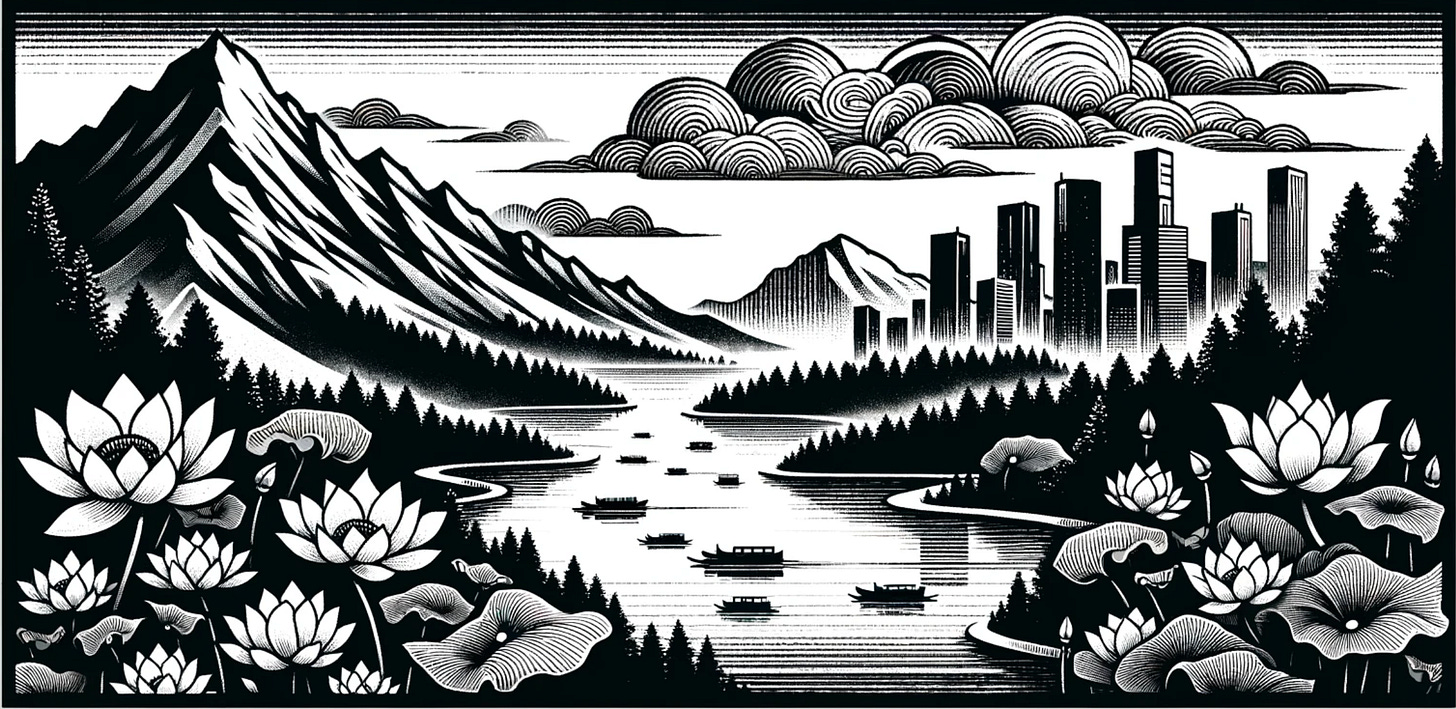Why Lotusland?
Why Lotusland? Lotusland is British Columbia’s long-standing nickname, an allusion to Alfred Lord Tennyson’s poem The Lotos-eaters, a recasting of Odysseus’ tale of lost mariners. Far from home, the sailors come upon a beautiful land of tumbling waterfalls, snow-capped mountains and pine-filled valleys where “mild-eyed melancholy Lotos-eaters came.”
Once the sailors had tasted “that enchanted stem, laden with flower and fruit,” they gave up their homeward journey for a “life of ease,” ready to “live and lie reclined . . . careless of mankind.”
There’s an element of truth to that stereotype of British Columbia as a land of plenty, the “best place on earth,” where people sail during the day, ski in the evening, golf year-round and work only as required, but Lotusland will focus on the much more complicated and contradictory reality.
In a long career in journalism, the labour movement, civic politics and finally in provincial government, I had the opportunity to see much of our province’s recent history close up. Lotusland is an attempt to record some people, places and events that might otherwise be lost, ignored or even covered up.
I’ll recount the remarkable stories of nearly-forgotten figures like Tomekichi Homma, who fought to win the vote for Japanese Canadians, I’ll explore the efforts to rekindle BC’s near-dead wild salmon fishery, and consider the mixed legacy of Expo 86, including the still unfinished redevelopment of the Expo lands.
The main story, however, is the overdose crisis. How did British Columbia, dubbed “the best place on earth” by its boosters, come to experience the first and possibly the worst fentanyl-driven overdose crisis in North America, if not the world?
The unwritten history of B.C.’s overdose crisis – who benefits from it and why it continues to rage virtually unchecked – will be one of Lotusland’s main focuses.
I should be clear that Lotusland's perspective on the fentanyl crisis starts from the following assumptions:
· that B.C.’s citizens are vulnerable to addiction because of the increasing dislocation, alienation and inequality of our society;
· that people vulnerable to addiction were victimized by the marketing and over-prescribing of legal opioids by pharmaceutical companies well aware of the harm they were causing;
· that the sudden denial of these legal supplies forced many people with substance use disorders or opioid dependences into the hands of B.C.’s already-existing and powerful criminal drug networks;
· that these criminal organizations began to adulterate the existing illicit drug supply with fentanyl as early as 2012, heedless of the risks that posed for users; and
· that the result has been a deadly epidemic that so far has defied all efforts to rein it in through harm reduction measures.
Many posts will be free, but I am commissioning capable and experienced researchers to help me fill in the gaps. That’s why I’m adding a paid subscription option for those who want to support my writing. I welcome your comments, criticisms and suggestions.
Subscribe to get full access to the newsletter and publication archives.
A note on sources
Although I do my own research and interviewing whenever possible, no one can write about organized crime in B.C. without relying on the work of peerless Vancouver Sun journalist Kim Bolan, whose decades of careful reporting, often at great personal risk, has laid the foundation for everyone else. Although I’ll cite her reporting as required, an overall acknowledgement is warranted.
Other writers whose work has informed much of this project include Peter Edwards and Luis Horacio Majera, authors of The Wolfpack, the Millennial Mobsters Who Brought Chaos and the Cartels to the Canadian Underworld, and Julian Sher and William Marsden, authors of The Road to Hell: How the Biker Gangs Are Conquering Canada.
I will give direct credit to other sources as necessary.
Stay up-to-date
Never miss an update—every new post is sent directly to your email inbox. For a spam-free, ad-free reading experience, plus audio and community features, get the Substack app.
Stay in touch
I welcome comments, suggestions and corrections from subscribers.
To learn more about the tech platform that powers this publication, visit Substack.com.



